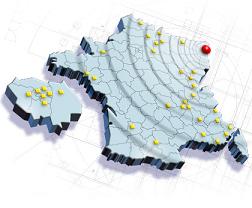-

Il y avait eu le précédent Rachida Dati à la une de Paris-Match, en robe tigrée Dior, en fin d'année dernière. Mais avec (liste non-exhaustive) Nathalie Kosciusko-Morizet chez Ruquier samedi dernier, Roselyne Bachelot chez Fogiel hier soir, Rama Yade en couverture de Psychologies cette semaine... Décidément, les ministres et secrétaires d'état du "people président" semblent avoir décidé d'imiter leur mentor et cédé aux sirènes de la presse "version large" et aux mélanges des genres.
En exclusivité pour ce blog, nous sommes donc en mesure de vous annoncer les prochaines apparitions de la petite armée de l'agité de l'Elysée.
Ainsi, très prochainement, Christine Boutin fera la une de Pélerin Magazine, sous le titre "ma religion: ma force". François Fillon apparaîtra dans Bon appétit bien sûr, pour une émission spéciale consacrée à la rillette du Mans. Jean-Louis Borloo expliquera à Entrevue qu'il draguait sa future femme pendant des reportages inintéressants du journal télévisé qu'elle présentait. Christine Lagarde révèlera à Mottes et Travaux qu'elle n'a jamais touché un tournevis de sa vie: engager un réparateur c'est si simple, et en plus ça fait tourner l'économie! Martin Hirsch fera la une de Gala sous le titre "il a couché avec l'abbé Pierre: révélations". Psychologies en remettra une couche, consacrant cette fois sa une à Bernard Koucher, qui avouera "je ne suis pas qu'un opportuniste". Michèle Alliot-Marie ira chez Mireille Dumas, à Vie privée Vie publique, et expliquera que dans la vraie vie, il lui arrive de sourire. Bernard Laporte signera un éditorial pour Jeux Vidéos Consoles/PC dans lequel il vantera les mérites du dernier "Rugby 2008". Quant à Hervé Morin, il ira à Ca se Discute, et se fera interviewer par Delarue sur le thème "j'ai un poste important mais personne ne me connaît".
A vrai dire, on pourrait s'accomoder de cette transparence généralisée, voire s'en amuser, s'il n'existait pas au cabinet présidentiel des personnages dont personne ne parle mais qui jouissent de pouvoirs certains sur les ministres. Tous ces Benamou, Soubie, Levitte, Pégard, tous conseillers du président de la République. Qui sont-ils vraiment, eux ?
 votre commentaire
votre commentaire
-

Speak about De Gaulle and NATO, it's in fact speaking about the De Gaulle presidency, between June 1958 and April 1969. The General Charles de Gaulle already diriged France, when he was president of the Provisional Government of the French Republic, between 1944 and 1946. But in this time, the alliance with United States and Great Britain couldn't be removed. It was just the beginning of the post-war period: French economy needed the American aid, and France needed the recognition of its allies. Moreover the Soviet threat was not even worrying than thirteen years later, and NATO didn't had a reason to exist. After 1946, De Gaulle went out the french politics. He agreed with the Pact of Washington who created the Atlantic Alliance, and with the North-Atlantic Treaty Organization, the military structure of the Atlantic Alliance, because of the soviet threat. However, during the 1950's he criticized the subordination position of France in NATO, but it was not so original: number of french governments asked for a bigger place for France in the Organization.
Speak about De Gaulle and NATO, it's understand the differences between the end of the Fourth Republic and the beginning of the Fifth Republic. The Fourth Republic was instable: the time of duration for the governments was around six months during the 1950th. The war in Algeria provoked the failure of the Fourth Republic: in may 1958 the french president René Coty, because of the risks of civil war, asked to the more illustrious of french people, De Gaulle, to come to the power to resolve the situation. The Fifth Republic, created by the Constitution of 1958, was more presidential and more stable: Charles De Gaulle stayed in the head of the country during eleven years. The Fourth Republic governments found to small the french place in NATO, but harmonized their military policy with the NATO's policy. De Gaulle used the same arguments during his presidency, but he brought novations to the french international politicy: prestige of his personality, determination and a new impulsion.
Speak about De Gaulle and NATO, it's often speaking about the French withdraw of NATO, announced the 7th of march 1966 by De Gaulle to the American president Johnson, as a beginning for the French independence. In contrary, it was the result of the De Gaulle's policy into NATO. Years before, De Gaulle had already started this withdraw: an announcement of his policy in 1958, and some decisions the years after.
Speak about De Gaulle and NATO, it's to say that, when De Gaulle came to the power, Paris was the seat of the Atlantic Council and the headquater of its european military commands. When De Gaulle decided to leave the power, in April 1969, France was still member of the Atlantic Alliance, but had left the military structures of NATO. There was no more american soldiers on French territory (they had been fifty thousand few years before) and the NATO's institutions had moved to Belgium.
Why De Gaulle disengaged France from NATO? How did this process functionned? And was De Gaulle an anti-american president?
First, we will study the background of the beginning of De Gaulle's presidency (1). The second part will be devote to the French revendications into NATO (2). Then, we will analyse the different steps of the De Gaulle into NATO's policy between 1958 and 1969 (3). Discussions will be the subject of the last part (4).
Demain, c'est vraiment les vacances. Fini les De Gaulle, les bouquins d'histoires, les archives du département d'état américain et les dictionnaires d'anglais. Ne reste plus que la conclusion à rédiger. Je vais enfin pouvoir me couper les cheveux, me raser, vidanger la voiture, commencer le montage vidéo, chercher du boulot pour l'été, refaire du violon, actualiser ce blog, profiter de la France. Bonne année à tous ; farniente, nous voilà !!
 votre commentaire
votre commentaire
-

C'est maintenant possible. On peut voir des vidéos Dailymotion sur la plate-forme de blog la plus réputée, la plus rentable, la plus formatée et la plus vulgaire (c'est peu cas de le dire..) du Web français: Skyrockblog. D'ailleurs Dailymotion, start-up française en pleine expansion, n'y va pas par quatre chemins pour ses publicités. Simple humour ou ironique militantisme ??
 votre commentaire
votre commentaire
-

Comme le dit Marion dans ce commentaire, c'est étrange d'avoir l'impression qu'ici rien n'a changé. Il y a bien ces quelques travaux achevés, ces quelques rues qui sont devenues en sens uniques ou ces quelques potins, mais dans le fond... rien n'a changé. Tant mieux, non?
Joyeux noël à tous, en retard. Et bonne année, en avance !
Sans oublier Jean-Luc ainsi qu'Olivier et sa petite Chloé.
A bientôt,
Nico
 votre commentaire
votre commentaire
-

Le 14 juillet danois dure... un mois. Non, cela ne veut pas dire que le pays s'arrête de vivre pendant un mois, ni que plus personne ne travaille pendant une trentaine de jours (encore que, paraît-il qu'il y aurait une vingtaine de jours fériés ici... on les attend), ni que tout le monde est beurré une trentaine de soirées consécutives (encore que... - tout court..). Mais plutôt que, s'ils sont interdits tout le reste de l'année, les pétards sont autorisés tout le mois de décembre. Et c'est donc tous les soirs à la nuit tombée (la notion de nuit tombée valant pour 15h30, on s'entend), que l'on peut entendre et parfois, avec un peu de chance, apercevoir des feux d'artifices improvisés. Une autre façon de fêter noël.
Une autre façon de fêter aussi le départ des étudiants étrangers - les derniers, les vrais! Entre autres, Nora, Petra et Matze sont partis aujourd'hui, Benny et Alex ne devraient plus tarder, Camille, Claire, Séb et moi partons demain, puis Céline, Lucie ou encore Hélène s'occuperont de la fermeture les jours suivants...
PARIS, NOUS VOILA !!!
 2 commentaires
2 commentaires




